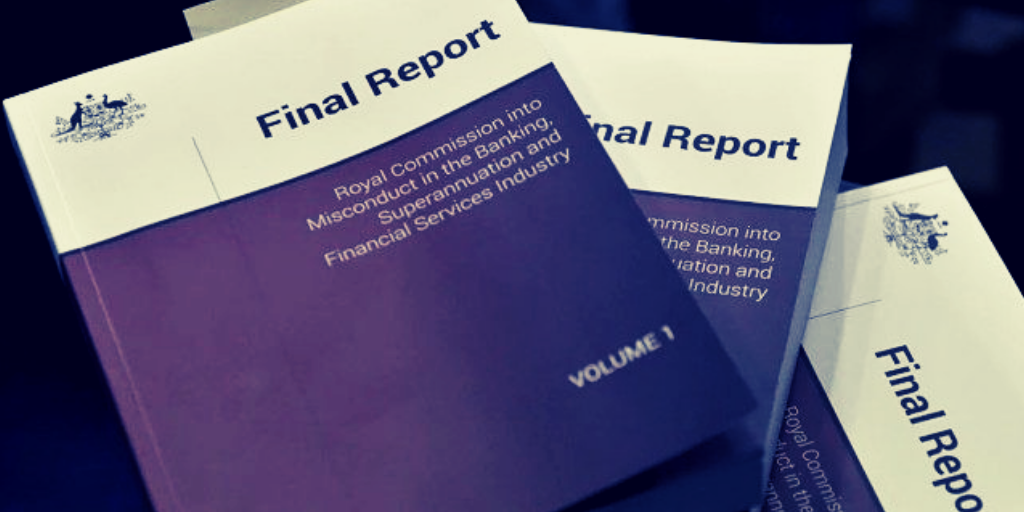Directors and advisors … watch this space … ASIC gears up
The response to the recently published Final Report into Misconduct in the Banking, Superannuation and Finance Services Industry was swift and decisive. Many of the financial organisations that were summonsed to appear, agreed to immediately implement many or all the Commissioner’s recommendations. Notably the Australian Securities and Investments Commission (ASIC) moved quickly to announce that it is committed to fully implement each of the 12 recommendations directed at it.
One of those recommendations relate to ASIC’s approach to enforcement. The Royal Commission identified ASIC’s enforcement culture as the focus of the change needed at ASIC. Practically this means less actions settled via undertakings, but rather a focus on whether the courts should determine the consequences of a contravention. The question that ASIC may have postured historically “why litigate” will now, says ASIC, be replaced with an approach that asks “why NOT litigate”.

To place the new enforcement “why not litigate” policy into context, it’s worth considering some Corporations Act 2001 provisions and policy matters ASIC often focus on in dealing with distressed entities. It’s believed that ASIC will now take steps to increase litigation against directors and officers for Corporations Act breaches that in the past it didn’t prosecute.
Typically, from a company distress and/or liquidation perspective, ASIC will take an interest in:
Directors and Officers:
- Section 180: Care and diligence
- Section 181: Good faith
- Section 182: Use of position
- Section 183: Use of information
- Section 184: Good faith, use of position and use of information
- Section 286: Books and records
- Section 588G: Insolvent trading
An example of ASIC taking an active interest in considering whether directors were discharging their duties appropriately, is the case of a client of the firm that received a Notice to Produce Documents from ASIC pursuant to section 30 of the Australian Securities and Investment Commission Act 2001 (ASIC Act). The first issue to note is that non-compliance of a section 30 Notice (without reasonable excuse), may expose directors to a fine of up to $11,000 or two years’ imprisonment (under section 63(1) of the ASIC Act).
Having undertaken its review ASIC set out its concerns that the directors may have breached section 588G of the Corporations Act by trading while insolvent. These concerns are worth repeating here because it sets out a useful checklist for advisers and directors to see firsthand what ASIC considers signs of insolvent trading (which were also set out in the Hall v Poolman decision):
- No financial statements for at least two years.
- Absence of up to date, accurate source documentation showing the company’s true financial position and its financial performance.
- Evidence of cheques being dishonoured.
- Creditor files evidencing widespread supplier/creditor dissatisfaction.
- Evidence of numerous legal proceedings commenced against the company.
- Significant arrears in tax debts.
- Significant arrears in super guarantee charges (SGC).
- The paucity of realistic forecasts that demonstrate the company’s ability to meet existing and future obligations.
- The paucity of documents supporting the proposed cash advance by a related company.
ASIC then set out its requirements, that:
- the directors seek advice from an independent insolvency practitioner in respect of the company’s solvency
- the directors seek advice in relation to their responsibilities and duties under the Corporations Act.
Given the backdrop of ASIC’s response to the Banking Royal Commission recommendations, as well as a likely increase in government funding, company directors can expect as a minimum: increased surveillance of suspected insolvent entities, and possible litigation following the liquidation of entities where the liquidator’s report identifies Corporations Act breaches.
Advisors who intervene early by assisting company directors navigate through potentially insolvent situations remains key to keeping ASIC at bay.
.jpeg?auto=format,compress&cs=tinysrgb&fit=crop&crop=focalpoint&fp-x=0.50&fp-y=0.50&fp-y=0.1&w=400&h=400&q=25&blur=5&sat=-100)


